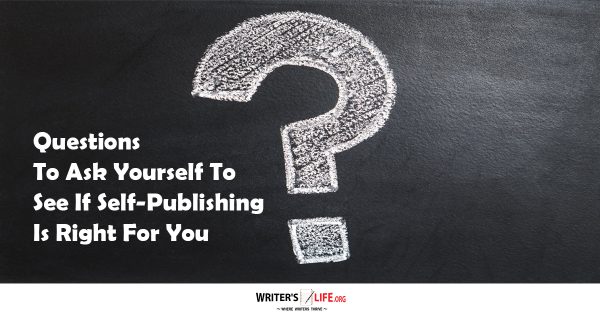- How To Tackle Jealousy In Creative Writing
- Common Submission Mistakes
- How To Stop Your Blog Becoming Boring
- The One Thing Every Successful Writer Has In Common
- How To Make Yourself Aware Of Publishing Scams
- Why Almost ALL Writers Make These Grammar Mistakes At Some Point
- 5 Tips For Authors On How To Deal With Rejection
- Top Mistakes to Avoid When Writing a Novel
- How to Avoid Common New Writer Mistakes
- 10 Mistakes New Fiction Writers Make
Questions To Ask Yourself To See If Self-Publishing Is Right For You

In 2007 Amazon launched it’s self- publishing platform, Kindle Direct Publishing (KDP), and changed the world of publishing dramatically.
Now writers were able to bypass the lengthy process of sending their manuscripts to publisher after publisher and save themselves the agony and disappointment of rejection after rejection. They could simply upload their document, publish it, and voila! It was ready for the world to see.
Since then other self-publishing platforms such as Smashwords and Draft2Digital have also launched their versions meaning that writers can see their words in print, as digital downloads, audiobooks and so on.
However, just because it is easy doesn’t make it the best option.
Many writers now bypass the whole traditional publishing process and opt straight for self-publishing, for the reasons described above and many more. But doing so without careful thought and consideration may result in regret later down the line. So before you commit, it’s good to ask yourself the following.
When are you planning to release your book?
If you want to try and get your book traditionally published you are going to have to be patient. Regardless of how long it takes to write and edit a book, you can expect to wait on average around six months for a publisher to get back to you with an answer, and that answer might very well be ‘thanks but no thanks.’ Even if you do get a positive response, it will typically take another year before you see it on the bookshelves.
Alternatively, if you want to self-publish you can do this pretty much immediately. While this is much more appealing to those who have finished their book and want to see it ‘out there’ as quickly as possible, it also may be more tempting to publish before your book is ready.
Are you hoping to sell lots of copies?
If you want millions of people to buy your book and to make good money from it, the toss-up between traditional and self-publishing is extremely tricky. On self-publishing platforms, the competition is extraordinarily fierce. Trying to get your book into a prominent position is almost impossible unless you already have a strong fanbase and high-profile platform from which to promote it.
However many publishers also demand this of you these days. Though they have huge marketing departments and teams of people who can conjure clever ways to promote your book, if you can prove you have an audience already, they are going to give your manuscript more serious consideration. Taking on a new book from an unknown author is a risk, however good it is - so without being sure they can sell a significant number of copies, they’ll be tough to convince.
However, traditional publishing is much more likely to enable authors to sell more copies of their books, both physically and digitally and so if selling copies is our number one goal, securing a contract with a publisher is your best route to success.
Do you want to be in control of the book?
Authors who can't bear the idea of anyone else meddling with their book should always self-publish. A traditional publisher will want to change things, and details such as the book cover will be their decision. While being in charge of every aspect of your book is a tremendous amount of work, you still have ultimate creative control and can present it to the world exactly as you intended. A traditional publisher may ask you to change parts of the story that you love, and once you have signed on the dotted line will take the reins from you, and you have to be OK with that.
These three questions can help you decide what your ultimate goal is when it comes to publishing your book. Answer them as honestly and in as much detail as possible and you’ll have a clear idea of whether self or traditional publishing is the right route for you.

Bethany Cadman -author of 'Doctor Vanilla's Sunflowers'





























